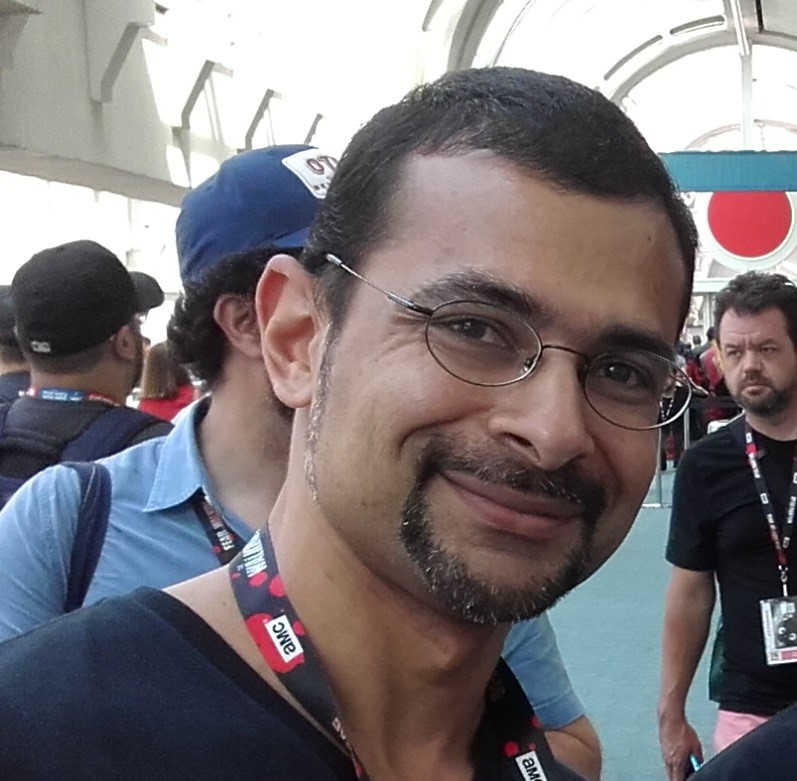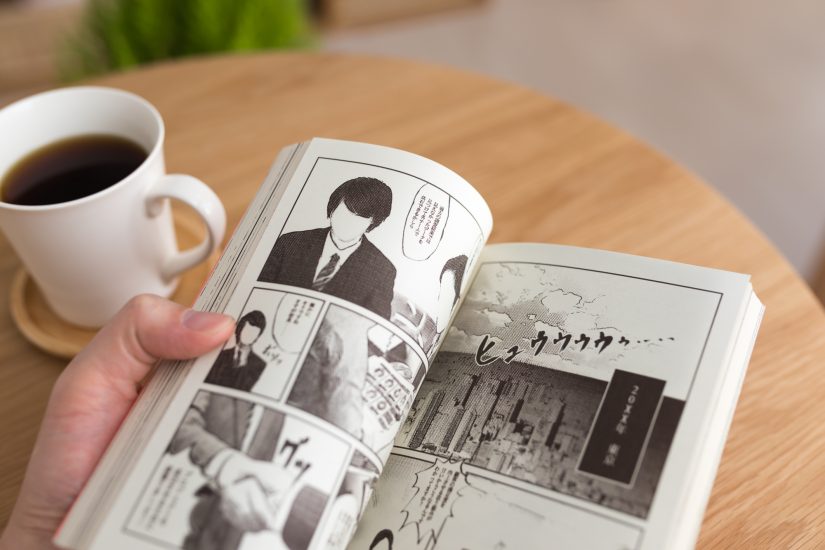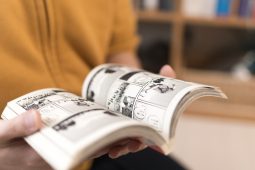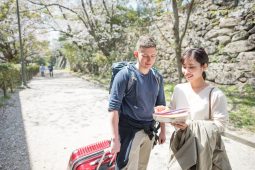Kumar Sivasubramanian is an Indian-born Canadian who has been working as a professional manga translator for 17 years. Translating from Japanese to English, his prolific output includes such titles as BLADE OF THE IMMORTAL, I AM A HERO, MOB PSYCHO 100, KNIGHTS OF SIDONIA and CRYING FREEMAN. Now based in Australia, Kumar lived in Japan for 6 years, during which time he taught himself to speak and read Japanese. By his own admission manga was not only an integral part of that process, but a major impetus for his move to Japan in the first place. Clearly Kumar is the ideal person to speak to on the topic of manga as a language study resource. Our writer, Michael Lambe, interviewed Kumar on exactly that topic.

Kumar Sivasubramanian
Michael Lambe: How indebted to manga do you think you are personally regarding your own Japanese studies? Was it the manga that led you into Japanese or just something you picked up along the way?
Kumar Sivasubramanian: For me, there was a definite through-line that started with anime. When I was around 12 I saw ROBOTECH (aka MACROSS) and GALAXY EXPRESS 999 on TV in the mid-80s. I loved them. That led me seek out more anime, which funneled into manga, which was only natural because I was already reading American comics. Anime and manga in English was relatively rare at the time, but the distinct character of it was still enough to turn me into a Japanophile. So, after I finished university, when the opportunity presented itself to live and work as an English teacher in Japan, I leapt at it. I don’t think I would have moved to Japan if it hadn’t been for that early exposure to anime and manga.
ML: Could you explain what it is about manga that appeals to you so much?
KS: You have to imagine being a kid watching GI Joe or Transformers in the early to mid-80s. Lasers knock people over and don’t do any other damage to them. Any time a jet is fired out of the sky, 100% you will see a parachute and the pilot floating to safety, unharmed. At the end of the episode, everything returns to whatever was the status quo at the start of the episode, and it’s like nothing happened. Same goes for any issue of Batman, Superman, or Spider-Man. Now, along comes ROBOTECH. Fighter jets explode: no parachutes. Major characters die, there is blood on screen, relationships change, the plot develops over 36 episodes. And that’s the end of the story! It doesn’t get milked for 50 years. This was mind-blowing as a kid. And when you encounter other Japanese comics or anime, either intentionally or by accident, you find the approach is often the same: there was a genuine, thoughtful focus on storytelling, narrative, and characters. Is 90% of the Japanese manga and anime market commercialized and derivative? Yes, but there’s something less crass and cigar-chomping about it anyway.
ML: Tell me about how you studied with manga: did you have any special study methods? Or did you just read tons of stuff and absorb it naturally?
KS: When I got to Japan, I pounced on the manga. I never took a Japanese lesson, but I bought some textbooks and self-studied every night, and then I would “read” manga, usually only recognizing 1 or 2 words a page, but I just kept at it. I watched a lot of Japanese TV and never understood it either, but I kept at it. Drip by drip, like the formation of a stalagmite, my understanding of the language started to take shape. The manga was a definite part of the chemical makeup. The textbooks alone were not enough. And of course the manga alone would not have been enough. I would look up words sometimes, but would stop if it got boring or TOO difficult. I think the point is: you need a motivator that pushes you to consume as much Japanese as possible. Expose yourself to it as often as you can, and in as many forms as you can. I moved to Japan in 1998 without one word of Japanese. I did my first professional manga translation in 2002. But I want to add that even now, I’m looking up and learning new words on every page.
In the second part of this interview, Kumar will give us his top manga recommendations for studying Japanese.








